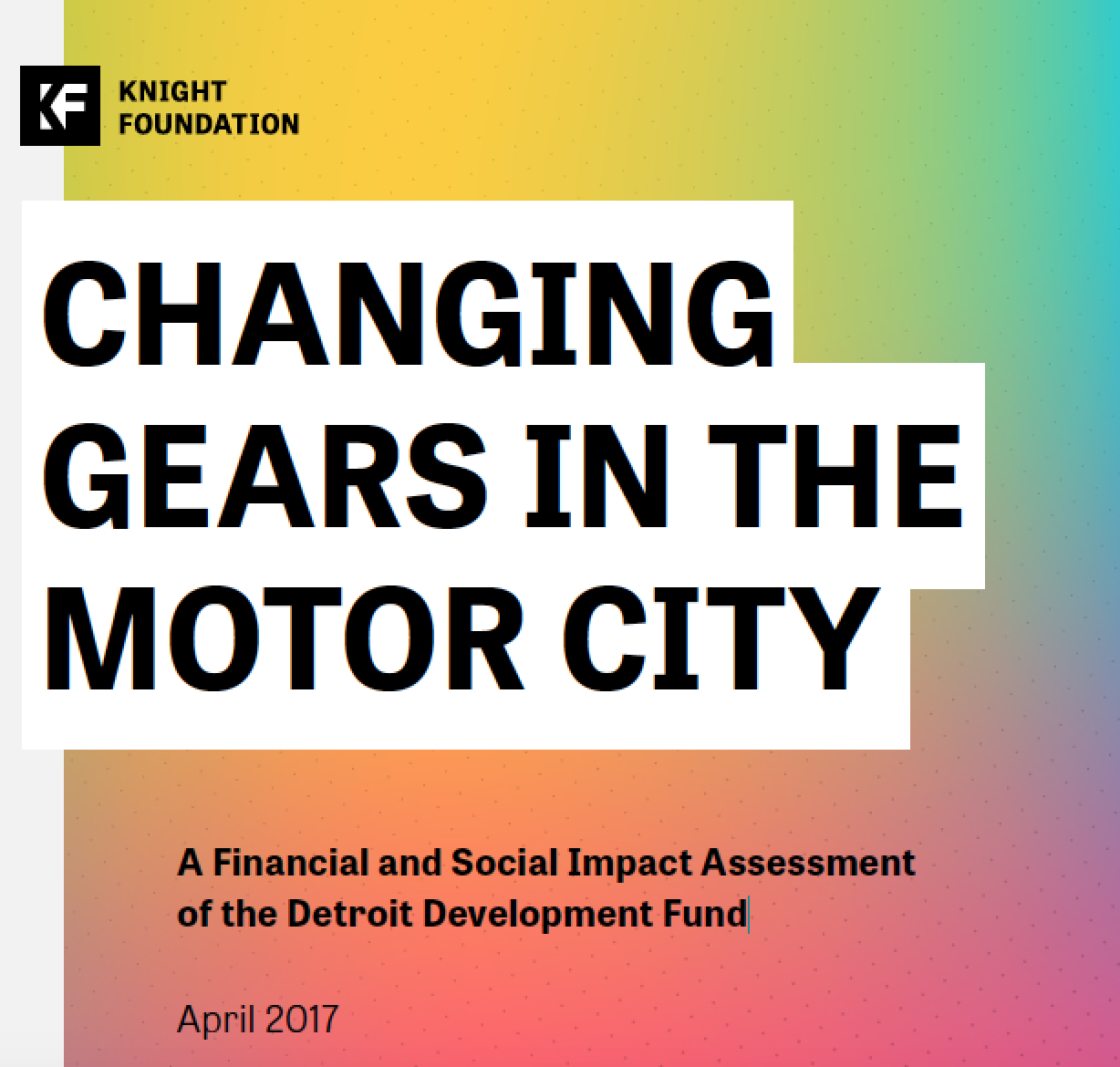Even before Detroit’s bankruptcy in July 2013, the city had been devastated by the aftermath of the Great Recession. Detroit’s small businesses— particularly in low-income, moderate-income and black neighborhoods— were struggling to access capital because few banks were lending. Indeed, the Federal Reserve Bank of Chicago noted in 2014 that “perhaps nowhere is the need for business development, financing and community revitalization more pronounced than in the city of Detroit.”
Among Knight Foundation’s investments to support business development in Detroit has been its work with the Detroit Development Fund. The fund is a community development lender that invests in underserved small businesses to revitalize neighborhoods in the city. In total, the Detroit Development Fund has made $43 million in loans since it was founded in 1996. It has been a key player in the redevelopment of retail hubs in formerly desolate parts of the city such as Midtown and West Village. Knight Foundation first invested in 2006, underwriting a program-related investment (PRI).
In 2015, Knight converted a $2.5 million loan (a program-related investment) to the Detroit Development Fund into a grant. The rationale for this move was, first, to further bolster the fund’s ability to serve small businesses in Detroit given the existing shortages of capital access from traditional lending institutions. In addition, the conversion had a positive impact on the Detroit Development Fund’s overall funding picture. Alongside Knight, other major funders pursued parallel funding models: Ford Foundation maintained its longstanding program-related investments with the fund, and W.K. Kellogg Foundation invested in a new pool geared toward minority small businesses (with JPMorgan Chase & Co. offering an equity cushion as further support).
Key Findings
Against this backdrop, this review examines the financial impact of the conversion to a grant in August 2015, as well as the Detroit Development Fund’s broader social outcomes. Among the key findings:
POSITIVE ECONOMIC IMPACT: The Detroit Development Fund is contributing to the intended impact of economic development. Capital is reaching businesses that show early signs of persistence and that are ultimately adding employees to the rolls.
IMPROVED FINANCIAL STABILITY: The conversion had the immediate effect of strengthening the Detroit Development Fund’s balance sheet and halting negative trends in its net worth. The fund has also leveraged its stronger net asset position by raising additional financing resources.
HEIGHTENED PROSPECTS FOR GROWTH: The Detroit Development Fund had projected various growth pathways post-conversion, and data show it is meeting aggressive growth projections.
GAINS IN DIVERSITY WITH ROOM FOR IMPROVEMENT: An analysis of 2015 and Q1 2016 baseline borrower data shows significant shifts in race/ ethnicity and gender, as well as the Detroit Development Fund’s ability to reach underserved smaller businesses with fewer assets. While baseline data suggest the fund was probably underperforming in reaching a pool of borrowers that represent Detroit, more recent data point to concrete improvement.
Read the blog post, “Investing in the future of Detroit: How a nonprofit lender takes a chance on small businesses when banks won’t,” here: http://kng.ht/2rbwddy
Read the press release, “New report reveals power of strategic investing to attract new capital, strengthen institutions,” here: http://kng.ht/2qbyGkL
